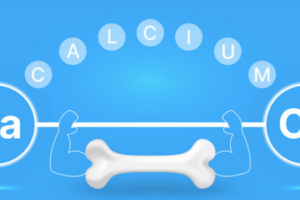Sudden Heart Strokes in Winter: Causes, Prevention, and Care

Winter is often associated with cozy blankets, warm beverages, and festive cheer. However, the cold season also brings heightened risks for heart-related health emergencies, particularly sudden heart strokes. Studies indicate that the incidence of heart attacks and strokes increases significantly during winter months. Understanding the causes, recognizing the symptoms, and taking preventive measures are essential to safeguard heart health during this season.
Why Are Heart Strokes More Common in Winter?
Several factors contribute to the increased risk of heart strokes in winter:
Cold Weather:
Exposure to cold temperatures causes blood vessels to constrict, leading to higher blood pressure. This puts extra strain on the heart, increasing the likelihood of a heart attack or stroke.
Increased Blood Clotting:
The body’s response to cold can lead to thicker blood, which heightens the risk of clot formation, a leading cause of strokes.
Overexertion:
Activities like shoveling snow or heavy physical exertion in cold weather can stress the heart, especially in individuals with pre-existing cardiovascular conditions.
Sedentary Lifestyle:
People tend to stay indoors and exercise less during winter, leading to reduced cardiovascular health and increased weight gain.
Seasonal Illnesses:
Winter often sees a rise in respiratory infections, such as the flu, which can strain the heart and trigger complications in vulnerable individuals.
Symptoms of Heart Strokes to Watch For
Recognizing the warning signs of a heart stroke can save lives. Common symptoms include:
- Chest pain or discomfort, often described as pressure or tightness.
- Shortness of breath.
- Pain or discomfort in the arms, back, neck, jaw, or stomach.
- Dizziness, lightheadedness, or fainting.
- Cold sweats and nausea.
- If you or someone you know experiences these symptoms, seek emergency medical attention immediately.
Prevention Tips for Winter Heart Health
Stay Warm:
Dress in layers and avoid prolonged exposure to cold weather. Keep your home well-heated and use blankets to stay cozy.
Maintain Physical Activity:
Engage in light indoor exercises to keep your heart active. Activities like yoga, stretching, or brisk walking can be effective.
Monitor Your Health:
Regularly check your blood pressure, cholesterol levels, and blood sugar, especially if you have a history of heart problems.
Follow a Heart-Healthy Diet:
Consume seasonal fruits, vegetables, whole grains, lean proteins, and healthy fats. Limit salt and sugar intake.
Stay Hydrated:
Cold weather can make you feel less thirsty, but staying hydrated is essential for good circulation and overall health.
Avoid Overexertion:
Perform outdoor chores cautiously, taking breaks and avoiding heavy lifting in cold conditions.
Quit Smoking and Limit Alcohol:
Smoking constricts blood vessels, and excessive alcohol can negatively impact heart health.
Get Vaccinated:
Protect yourself from seasonal illnesses like the flu by getting vaccinated, reducing the risk of respiratory complications.
Importance of Regular Checkups
Winter is a critical time to schedule regular health checkups, especially for elders or individuals with pre-existing conditions. Early detection of any cardiovascular risks can prevent complications. At Health At Homes, we provide at-home health monitoring services, including ECG tests, blood pressure checks, and personalized heart health consultations, ensuring that your loved ones receive professional care without the hassle of hospital visits.
How Health At Homes Can Help
At Health At Homes, we understand the challenges of managing heart health during winter. Our range of services includes:
- At-Home ECG Services: Monitor your heart health in the comfort of your home.
- Blood Pressure Monitoring: Regular checkups to detect and manage hypertension.
- Diet and Exercise Guidance: Personalized plans for a heart-healthy lifestyle.
- Emergency Response: Immediate support in case of heart-related emergencies.
Winter’s chilly embrace should not come at the cost of your heart’s health. By understanding the risks, taking preventive measures, and prioritizing regular health checkups, you can significantly reduce the chances of sudden heart strokes. Health At Homes is here to support you with expert care and convenient at-home services, ensuring you and your loved ones enjoy a safe and heart-healthy winter season.
Take proactive steps today—because a healthy heart is the key to a joyful winter!







